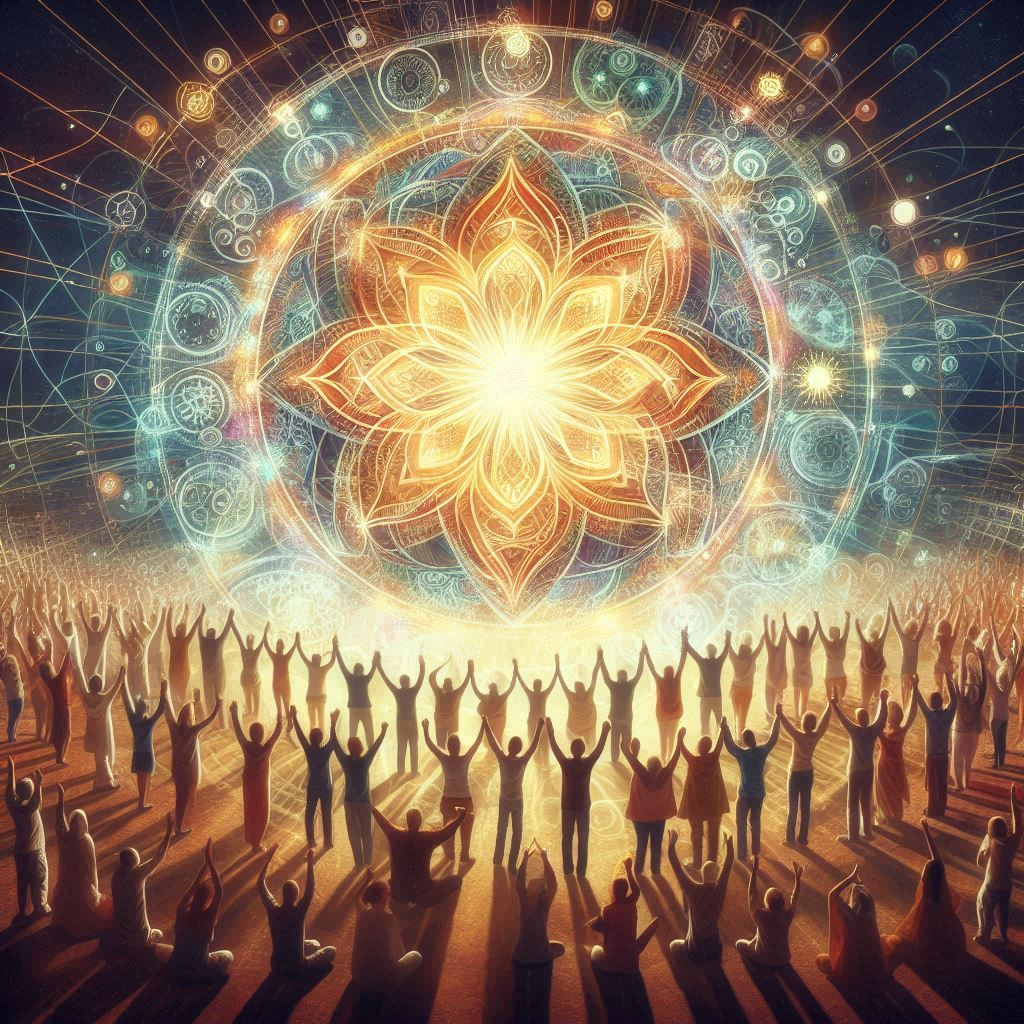Ever feel like the world is spinning a little too fast? Like the weight of worries and anxieties is threatening to crush you? You’re not alone. In today’s fast-paced, hyper-connected world, depression and anxiety are on the rise.
According to the World Health Organization (WHO), depression is the leading cause of disability worldwide. An estimated 264 million people suffer from depression globally, with anxiety disorders affecting 84 million [WHO, Depression and Other Common Mental Disorders].
That’s a staggering number, and it’s clear that traditional approaches to mental health aren’t always enough. This is where spirituality can step in and offer a powerful and complementary tool for navigating the dark waters of depression and anxiety.
Unpacking Spirituality: It’s More Than Just Religion

Now, before you switch off thinking this is just another religious preach-fest, hold on! Spirituality is a broad term that encompasses a search for meaning and purpose in life. It’s about connecting with something bigger than yourself, whether that’s a higher power, nature, or a deep sense of humanity.
Think of it like a compass that can guide you through life’s storms. It doesn’t dictate a specific path, but it helps you navigate towards a sense of peace and fulfillment.
Science Backs the Benefits: From Meditation to Community
Here’s the good news: there’s growing scientific evidence that spirituality can have a positive impact on mental health. Studies have shown that practices like meditation can reduce symptoms of anxiety and depression [BMC Psychiatry, Religiosity and spirituality in the prevention and management of depression and anxiety in young people: a systematic review and meta-analysis].

Meditation helps train your mind to focus on the present moment, reducing rumination about the past and worry about the future, common triggers for anxiety and depression.
Spirituality can also foster a sense of belonging and community. Connecting with others who share similar values and beliefs can provide invaluable social support, a key factor in combating depression and anxiety.
Remember that celebrity Chrissy Teigen who recently opened up about her struggles with postpartum depression? She credits meditation and spending time in nature as essential parts of her healing journey [US Magazine, Chrissy Teigen Reveals How Meditation Helped Her Through Postpartum Depression].
Finding Your Spiritual Path: It’s a Personal Journey
There’s no one-size-fits-all approach to spirituality. What works for one person might not resonate with another. The key is to explore and find what brings you a sense of peace, purpose, and connection.

Here are a few ideas to get you started:
- Meditation: This practice involves quieting your mind and focusing your attention. There are many different meditation techniques, so find one that suits you.
- Spending time in nature: Take a walk in the park, hike in the woods, or simply sit outside and soak up the sunshine. Studies show that spending time in nature can have a significant mood-boosting effect [Environmental Science & Technology, Viewing Nature Scenes Promotes Emotional Recovery from Stress].
- Mindfulness: Practice being present in the moment. Pay attention to your thoughts, feelings, and bodily sensations without judgment.
- Gratitude: Take time each day to appreciate the good things in your life, big or small. Gratitude journaling is a great way to cultivate this practice.
- Connecting with a spiritual community: Find a group of people who share your values and beliefs. This could be a religious organization, a meditation group, or even a book club that focuses on spiritual topics.
- Helping others: Volunteering your time or simply doing something kind for someone else can give your life meaning and purpose.
Don’t Throw Out the Meds Just Yet: It’s a Team Effort
It’s important to remember that spirituality is not a replacement for professional help. If you’re struggling with depression or anxiety, it’s crucial to seek medical attention. Therapy, medication, and spiritual practices can all work together to create a well-rounded approach to mental health.
It’s Not All Sunshine and Rainbows: Addressing Concerns
While spirituality offers a wealth of benefits, it’s important to address some potential concerns:
- Organized Religion: Not everyone finds comfort within organized religion. Spirituality can be a very personal journey, independent of any specific doctrine.
- Exploitation: Unfortunately, there are those who exploit people’s vulnerabilities in the name of spirituality. Be wary of anyone who pressures you into donating large sums of money or following extreme practices.
- Feeling Like a Failure: Don’t get discouraged if you don’t experience immediate results. Spiritual growth is a gradual process. Be patient with yourself.
A Brighter Future: Hope and Healing Through Spirituality

In conclusion, spirituality is a powerful tool that can complement traditional approaches to mental health. By exploring practices like meditation, connecting with nature, and fostering a sense of community, you can cultivate inner peace, purpose, and resilience. Remember, you’re not alone on this journey. There are millions of others seeking the same sense of well-being.
So, take a deep breath, embrace the journey, and allow yourself to be guided by your inner light. You might be surprised by the strength and peace you discover within yourself.

